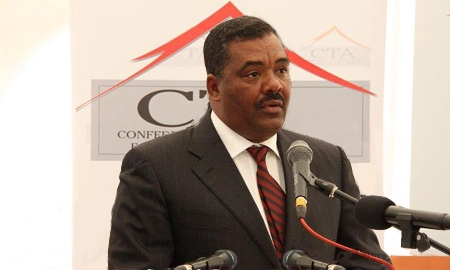Can you tell us how the private sector and CTA was born in Mozambique?
Before Mozambique underwent economic reform, we had a centrally planned economy where all companies belonged to the Government and there was no private sector; everything went to the state. Afterwards, the Government offered an opportunity to open up the market to the private sector and that is when CTA was born and began discussing economic and political reforms with the Government.
This was used as a dialogue platform between the private sector and the state. We started working together in building the Mozambique that we are now, which is not just thanks to our rich natural resources, but rather from the result of an existing dialogue that we started a long time ago.
After the shift in economic policy, there was a greater openness towards the participation of the private sector in the national economy, and these mega-projects started to appear. We keep on fighting so economic policies get better and end up reducing the bureaucracy we have lived with up to now.
What lessons have you learned during the transitional periods during the Samora Machel and Chissano governments?
Mozambique is an 80% agricultural country. This natural resource boom does not mean much, because we speak of a product that has an expiration date. However, agriculture does not end. In agriculture, we have worked with countries such as Korea, China and Brazil; these are the countries that have a lot to teach us about agriculture because they understand it and produce industrialized agriculture.
In terms of natural resources, we have natural gas. There are countries such as Trinidad and Tobago that have been exploring and exporting natural gas for a very long time. They have been exploring off-shore, like Mozambique is doing now. The difference is that they started 40 years earlier. We aren’t sure how to include the private sector in this exploration. We do not aspire to take 40 years; we want to know the secret they found out during all these years and include local businessmen in the exploration of this resource.
In relation to coal, we have been working with South Africa. It began exploring for coal in the 1930s and we are benefiting from their experience.
Given the country’s heavy reliance on a low-tech agricultural sector and a very sharp gap between urban and rural dwellers, what does bringing economic equality mean? How can the private sector contribute?
This vision comes from the private sector. As a citizen, looking at the government’s income in 8 years time, Mozambique will have a large volume of tax money from natural resources. With that, civil society organizations and the state are working to realise how we will divide these coming values among the population.
One of the tasks of the CTA is to foster the emergence the entrepreneurial mindset, of a middle class. What’s your vision in that sense?
We have provincial business councils. This is a step we took three years ago. We are building business centres. These centres will help spread this concept and try to help people starting with their own businesses. They will learn and be in touch with lots of information on content, capacity, training and research.
Where would you like the country to be in 10 years time, taking into account initiatives that CTA has executed and is planning to execute?
As president of CTA, I would like to see a very strong national private sector. Taking the example of the US, whatever Obama wants to do, businessmen step in, he will have no option of doing it, and will have to stop; the economy dictates the rules.
I would like to see a better organized private sector with a system where even the small farmer is involved in the big projects, where one does not have to go to South Africa to buy tomatoes, oil, etc. I would like to see this take place, for money circulation to be internal and not external, and for a decrease in importation.
There is a very strong need for training inside the country and there are companies from the private sector that are already getting in strongly in the area of training, I would like to see a more dynamic role for these companies and more people educated in Mozambique. Our production depends a lot on worker’s training.
It is possible to accomplish this. I believe there is much know-how in other continents from which we could benefit, establishing partnerships and joint ventures. One of CTA’s roles is to look for foreign partnerships and set up training centres so that we have qualified staff.

0 COMMENTS